Filling up regularly
Just as a combustion engine needs regular fill-ups from the bowser, EVs must be plugged in regularly to keep those batteries full.
However, not all chargers are created equal. The time taken to charge is influenced by:
- The type of charger
- The power of the charger
- The maximum charging capacity of the vehicle
- The changing charge-level of the vehicle battery
Regardless of how you charge, JET Charge recommends treating your EV like a smartphone, plugging in whenever a charger is available, particularly overnight.
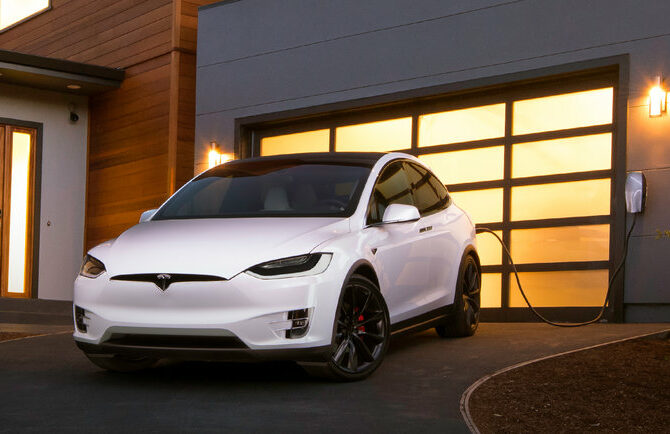
How fast is AC charging?
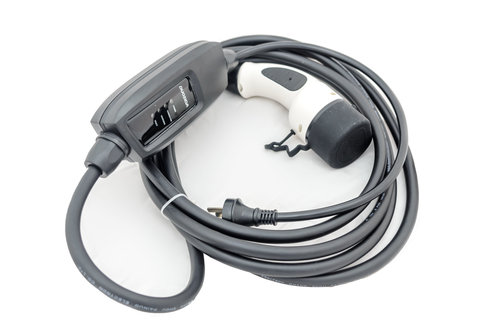
How fast are portable charging cables?
EVs can charge from a regular, 240V AC power outlet. This is known as Level 1 charging. However, the 2.4 kW output of most outlets is not enough to charge quickly or after long drives. Any charger plugged into a standard AC outlet will deliver approximately 10 km of range per hour of charge.
How fast are AC charging stations?
For a reliable daily charge, JET Charge recommends having a Level 2 charging station installed in your home. These units can charge up to 3x faster than a portable charging cable; more than enough for most people’s daily driving needs.
For AC stations, the charging time will depend mostly on the on-board charger of your EV. If it exceeds 7 kW, an AC charging station can deliver approximately 30 km of range per hour of charge.
If it is less than 7 kW, the maximum charging speed may be limited.
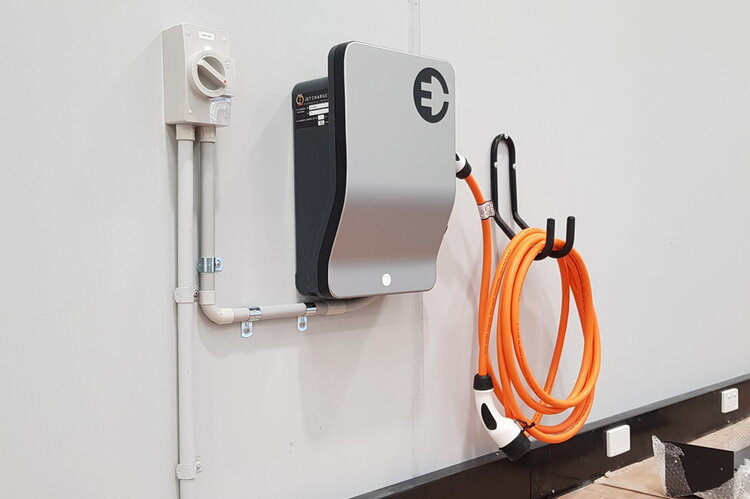
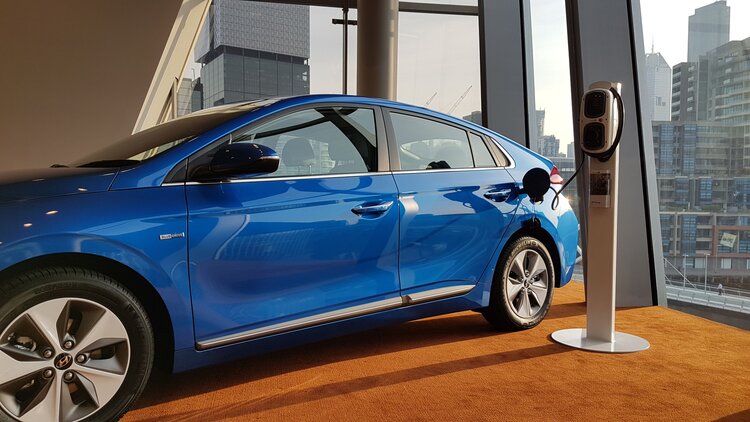
This includes the following popular EVs sold in Australia:
3.3-3.7 kW — approximately 15 km of range per hour of charge
- Hyundai Ioniq Plug-in
- 1st generation Nissan LEAF (2012-2019)
- Audi A3 Sportback e-tron
- Volvo plug-in hybrid range
- BMW i3 and i8
- Mitsubishi Outlander PHEV
6.6 kW — approximately 25 km of range per hour of charge
Note: for plug-in hybrids, this is less important since their battery capacity is much lower.
How fast is DC charging?
Charging from a DC station is far faster than AC models.
These EV chargers bypass the limitation of the vehicle’s onboard AC rectifier. Most Australian EVs can accept at least 50 kW of DC charging.
The following EVs are incompatible with DC charging:
DC charging rates vary considerably as your vehicle receives charge. A session at a 100 kW charger may begin delivering over 90 kW, then slow to half that rate as the battery nears capacity. This slowing process protects your EV battery from damage due to overcharging. For the same reason, every EV has a maximum DC charge rate it will accept. This can range from 50 kW to upwards of 200 kW.
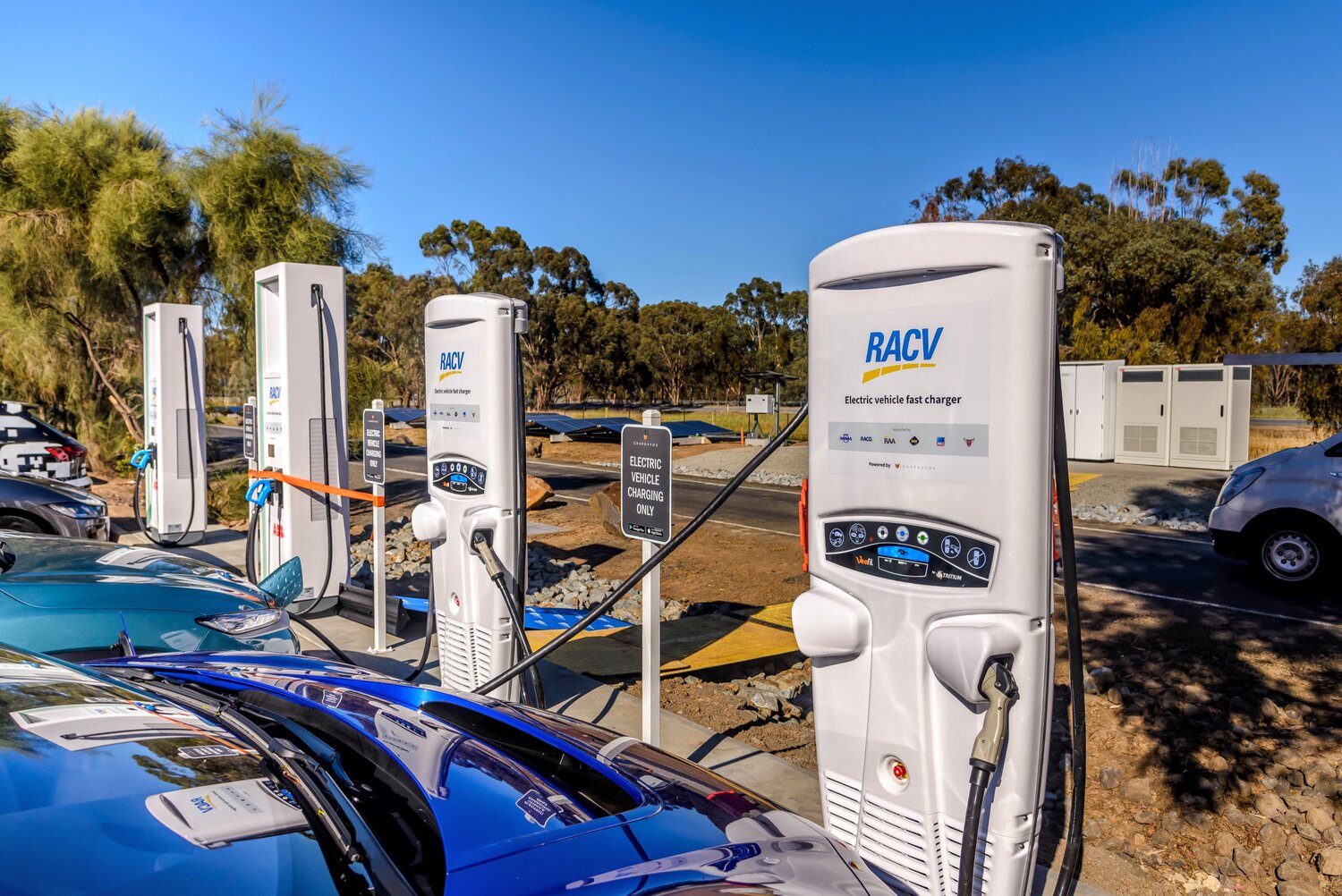
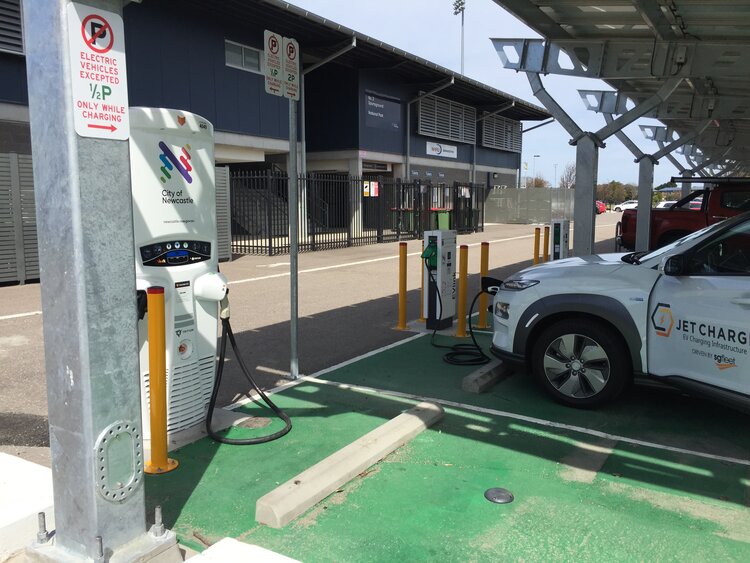
DC Charging speeds
So long as your EV can accept the full output of the charger, the following charge speeds are possible using Level 3 DC stations:
- 50 kW: 50 km of range per 10 minutes
- 175 kW: 175 km of range per 10 minutes (theoretically)
- 350 kW: 350 km of range per 10 minutes (theoretically)
Note: No EV sold today can accept the maximum power output of a 350 kW charger
In practise, these times will vary significantly and often be much lower than the rates listed above. For best efficiency, JET Charge recommends only charging to 80% at public DC charging stations before continuing your journey. For most EVs, there will be no difference between speeds at a 175 kW and a 350 kW charger.
For information on how much time you should allocate to charging, see our page below.


